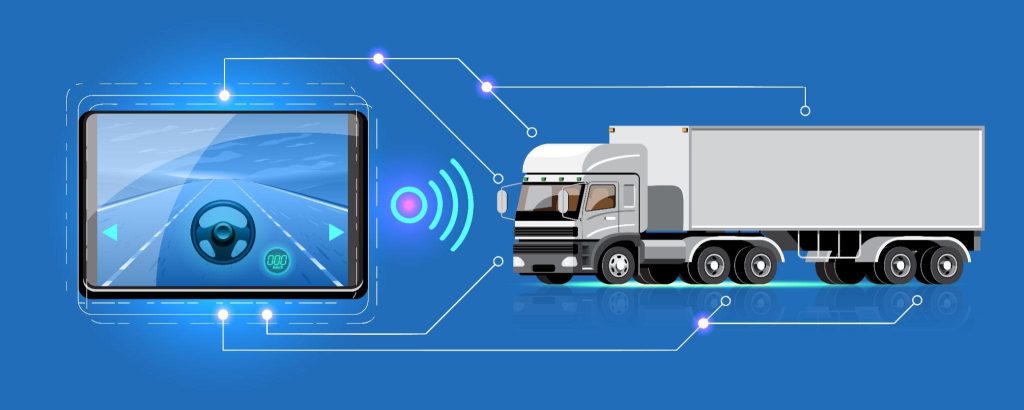As the logistics industry continues to evolve, the role of truck dispatchers becomes increasingly vital in ensuring the smooth and efficient operation of fleets. In this dynamic landscape, the integration of GPS and tracking systems has revolutionized the way dispatchers manage their vehicles, drivers, and overall logistics operations. This article delves into the crucial importance of GPS technology for truck dispatchers, exploring how choosing the right systems, effectively integrating them into operations, and leveraging data analytics can significantly enhance efficiency, accuracy, and safety. Join us as we navigate through the key strategies and best practices for utilizing GPS and tracking systems effectively in the realm of truck dispatching.
1. Importance of GPS and Tracking Systems for Truck Dispatchers
The Role of GPS in Modern Truck Dispatch Operations
In the wild world of truck dispatching, GPS is the unsung hero that helps you keep track of your fleet’s whereabouts in real-time. No more guessing games or carrier pigeons to find out where your trucks are – GPS has got your back.
Benefits of Tracking Systems for Fleet Management
Tracking systems are like your trusty sidekick when it comes to fleet management. They help you optimize routes, improve fuel efficiency, and keep an eye on driver behavior. It’s like having a virtual assistant that does all the heavy lifting for you.
2. Choosing the Right GPS and Tracking System
Evaluating Key Features and Functionality
When choosing a GPS and tracking system, it’s like picking the perfect avocado – you need to look for that sweet spot of features and functionality. Make sure it covers all your needs, from real-time tracking to customizable reporting.
Considerations for Scalability and Integration
Just like a good recipe, your GPS system should be able to scale up as your fleet grows. Think about future-proofing your tech and ensuring it plays nice with other systems you have in place.
3. Integrating GPS Technology into Dispatch Operations
Implementing GPS Systems in Dispatch Workflows
Integrating GPS into your dispatch workflows is like adding sprinkles to your ice cream – it just makes everything better. Streamline your operations, improve efficiency, and keep everyone on the same page with real-time location updates.
Training Dispatchers on System Navigation
Don’t toss your dispatchers into the deep end of the GPS pool without a life jacket. Make sure they are trained on system navigation so they can confidently steer your fleet in the right direction.
4. Enhancing Efficiency and Accuracy through Real-Time Tracking
Real-Time Monitoring of Vehicle Locations
With real-time tracking, you’ll always know where your trucks are at any given moment. It’s like having a crystal ball that shows you the future – well, at least where your trucks will be next.
Utilizing Automated Alerts and Notifications
Automated alerts and notifications are like having a personal assistant that whispers in your ear when something needs your attention. Stay on top of delays, deviations, or any unexpected hiccups with these handy tools.**5. Utilizing Data Analytics for Improved Decision-Making**
Navigating the world of GPS and tracking systems as a truck dispatcher isn’t just about seeing where your truck is on a map—it’s also about harnessing data analytics for smarter decisions. By diving into historical data, you can uncover performance insights that can enhance your operations. Whether it’s identifying trends in delivery times or pinpointing areas of inefficiency, data analysis can be a game-changer.
When it comes to optimizing routes and schedules, data-driven decisions reign supreme. By leveraging the power of GPS data, you can fine-tune your routes to avoid traffic congestion, reduce fuel consumption, and boost overall efficiency. Say goodbye to guesswork and hello to precision planning based on real-time information.
**6. Ensuring Driver Safety and Compliance with GPS Solutions**
Safety is non-negotiable in the world of truck dispatching, and GPS solutions play a crucial role in keeping drivers secure on the road. By implementing safety protocols through GPS tracking, you can monitor driver behavior, set speed limits, and receive instant alerts in case of emergencies. It’s like having an extra set of eyes watching over your drivers at all times.
Maintaining regulatory compliance is also key, and tracking systems can help you stay on the right side of the law. Whether it’s monitoring driving hours, ensuring vehicle maintenance checks, or keeping up with industry regulations, GPS technology is your trusty compliance companion.
**7. Training Dispatchers on GPS System Usage**
To make the most of GPS technology, proper training is essential. Providing dispatchers with comprehensive training programs ensures they have the knowledge and skills to navigate these systems with ease. From understanding the basics of GPS tracking to mastering advanced features, ongoing training is key to success.
Armed with the best practices for efficient system utilization, dispatchers can streamline operations, boost productivity, and enhance communication with drivers. By staying up-to-date on the latest GPS trends and tools, dispatchers can unleash the full potential of these systems.
**8. Overcoming Challenges and Maximizing Benefits of GPS Technology**
Implementing GPS technology comes with its fair share of challenges, from technical glitches to resistance from team members. By addressing common implementation challenges head-on and offering support every step of the way, you can ensure a smooth transition to GPS-powered operations.
To maximize the return on investment and operational efficiency, focus on tips and strategies that align with your specific goals. Whether it’s optimizing fleet performance, reducing costs, or improving customer satisfaction, leveraging GPS technology to its fullest potential is the key to success in the competitive world of truck dispatching.In conclusion, the adoption of GPS and tracking systems has transformed the truck dispatching landscape, offering a plethora of benefits in terms of efficiency, safety, and decision-making. By embracing these technologies and implementing them strategically, truck dispatchers can streamline operations, enhance driver productivity, and ultimately drive greater success for their fleets. As the industry continues to embrace innovation, staying abreast of the latest advancements in GPS technology will be essential for dispatchers looking to stay ahead of the curve and maximize the potential of their operations.

FAQs
1. How do GPS and tracking systems benefit truck dispatchers?
2. What factors should truck dispatchers consider when choosing a GPS system for their fleet?
3. How can GPS technology help improve driver safety and compliance with regulations?
4. What are some common challenges faced when integrating GPS systems into dispatch operations, and how can they be overcome?
Views: 0



